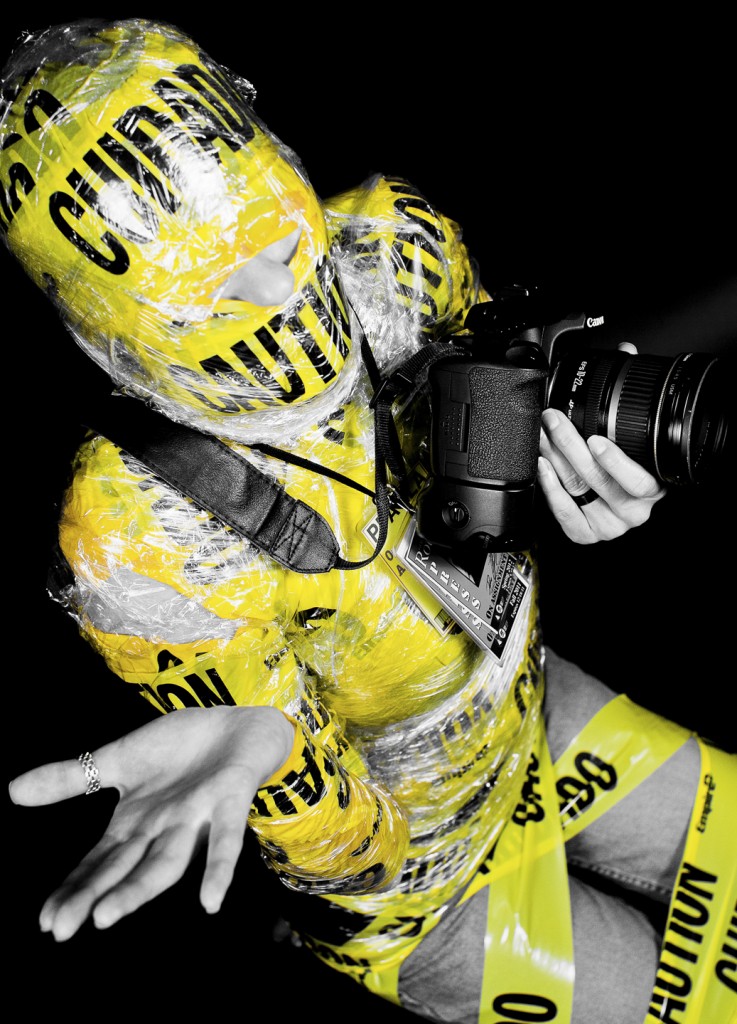
The First Amendment of the United States Constitution states that “Congress shall make no law… abridging the freedom of speech, or of the press.”
Sadly, as Roundup staff has witness over the past semester, those who enforce laws on campus are not familiar with this basic amendment.
Law enforcers do not, in any way, possess an excuse to be ignorant to the law simply because they are authority figures.
What’s more is that they should set an example to the public in outstanding following of laws.
Only two weeks ago, a Roundup photographer attended the free and open-to-the-public Thursday concert series to quietly shoot photos that would be published in the Roundup.
When the professor in charge of the concert saw him, he called him to talk outside. There, he told the photographer that he was not allowed to shoot photos at the concert.
The photographer tried explaining that because the event, which was not private, took place in a venue that was not private property, he is legally allowed to take photos of.
The professor quickly and offensively responded that the doors have already been locked, which means the concert is no longer a private event, walked away and shut the door to the concert.
The photographer called the Sheriff’s Station, hoping that they would enforce his freedom of speech.
But when five security officers showed up near the music building, all they did was discourage and put down the photographer.
We can confiscate your photos if we wanted to, they told him. And if you don’t oblige, we can arrest you.
That is not true.
News reporters and photographers from a “duly authorized” newspaper may enter and report from any public arena, according to California Penal Code Section 409.5.
The officers also told the photographer that, just so he knows, if he was to arrive to a crime scene before them, they have the right to confiscate his photos. And if he resists, they can arrest him.
That is not true either.
Even if officers had already reached a crime scene, and have declared the area a closed emergency field, a reporter or photographer is allowed to enter it, according the same California penal code section.
Since this case, the Media Arts department worked on remedying the situation, and came to an agreement with the Music department regarding the free concert series, Jill Connelly, chair of the Media Arts department, said.
But this is not the first time nonsense such as this has dispirited photojournalism students on campus.
Last semester, a Roundup photographer was stopped when taking photos at the public pool on campus for a class project. Only after the dean of the Media Arts department got involved was it revealed that taking photos at the pool was completely legitimate.
Another time, a photographer and a reporter of the Roundup were prevented from entering an emergency area to cover hazard material detected on campus by a security officer. In that case, there was already other media reporting from within the emergency area.
This photographer still often encounters the officer that stopped him from shooting at the scene.
“Whenever I’m trying to shoot something, [the officer] will remind me that he has my address and phone number, and knows who I am,” the Roundup photographer said of the officer that once obtained his information. “He’s harassed me.”
This photographer has been experiencing incidents such as these for several semesters.
President of the Journalism Association of Community Colleges Mary Mazzocco cannot recall similar incidents in other community colleges over the past years.
“I’ve heard of police trying to get photographers’ photos to use as evidence, but not of cases like this,” she said.
She does, however, recall cases in which the problem was solved by officers and deputies getting familiar with the California Shield Law, which protects photojournalists from being forced to disclose their information or give away their work.
So please, officers, make sure you are educated when it comes to our rights. Because every California resident, and law enforcers in particular should be familiar with one’s freedom of speech.
We, the press, are not here to bully nor trouble you. We are here to inform the public of the news, whether they are good or bad, thrilling or gloomy.


